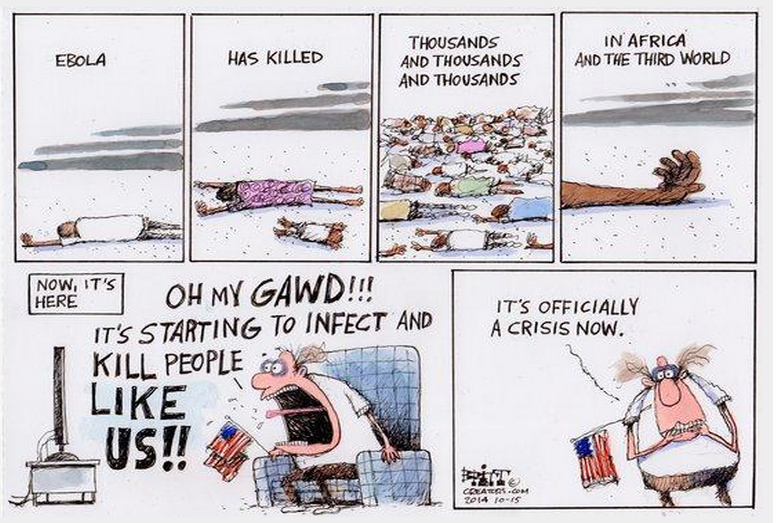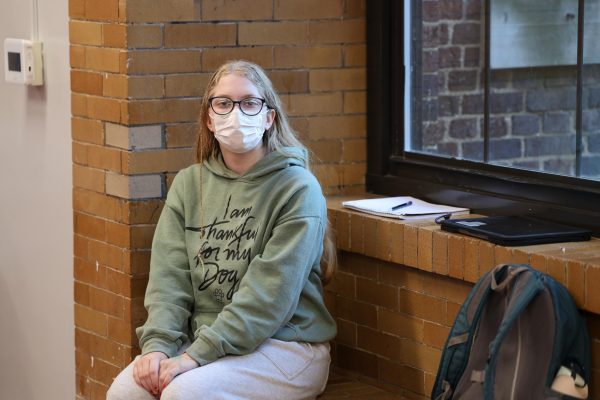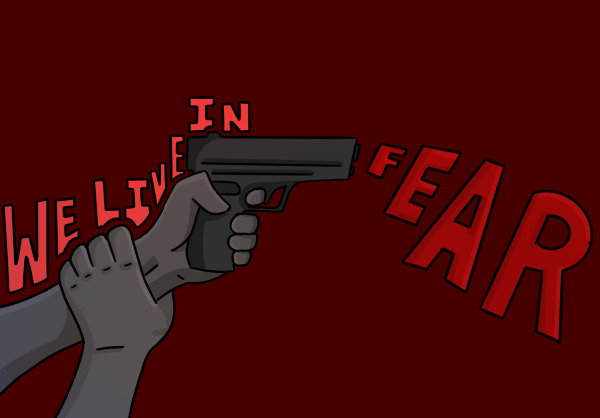#FightEbola or #FightPoverty?
A newly developed fear of Ebola has washed over the country. Ten people have been struck by the disease; all initially contaminated in West Africa, and all completely recovered except for one. The fright of the disease stems more from media portrayal, which shapes the knowledge and ignorance of the general public.
In comparison to our minimal numbers, over 5,000 people have died from the disease in a few countries in Africa. Though the victims in our country should not be overlooked or diminished, cases in the United States constitutes a mere 0.0002 percent of the outbreak overseas.
Our nation is currently taking action by appointing public health laboratories to study Ebola and protective measures. In Guinea, Liberia and Sierra Leone, only 15 operational centers have been opened. Our advanced medical systems make it so that there is a higher chance of treatment here than in those countries.
On the other hand, Guinea, Liberia and Sierra Leone are three of the poorest countries in the world. They have recently emerged from civil wars, which have severely hurt their health systems. Therefore, the vicious spread of Ebola may likely be an indirect result of the widespread poverty. Because the virus is extremely infectious, through any transfer of bodily fluid, the unsanitary conditions of poverty only promote the spread of it. Proper sanitation is unfortunately not a top priority in developing countries with other dire needs.
Recently, the #FightEbola movement was initiated by NBC News and Facebook. The hashtag consisted of stories of children and families impacted by Ebola. The campaign’s aim remains to raise awareness of the disease’s symptoms and impacts.
“Ebola outbreaks can be contained, even without a vaccine or cure,” Margaret Chan, M.D., said. ”Nonetheless, with the formidable combination of poverty, dysfunctional health systems, and fear at work, no one is talking about an early end to the outbreak.”
Poverty is the source of the disease’s spread, so we are fighting the wrong battle. #FightEbola should truly be a movement to #FightPoverty. Like Dr. Chan said, the outbreaks can be contained, but only when the primary problem–poverty–is tackled by allotting more funds to sanitation, general health education, medical supplies and staff. By investing more time, money and energy to eradicate poverty, we can slow down the rapid spread of Ebola.
In addition to its research endeavors, the U.S. should also focus on bringing affected, impoverished countries out of their poverty. We have currently sent doctors and nurses to Guinea, Liberia and Sierra Leone, but it is also vital to send members of the Environmental Protection Agency and Public Health Officers as well. Working as a collective, the poverty-ridden locations may be sanitized and educated about preventative measures and personal hygiene.
Fearing a disease that we have very little chance to contract is not the most effective use of our time. Rather, we can invest time in mitigating the growth of it from the root.









